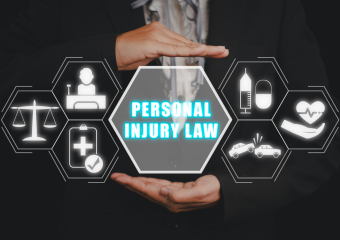Medical Malpractice Georgia: 7 Must-Have Tips for Winning Cases
Medical Malpractice in Georgia: 7 Signs You Might Have a Case
Medical malpractice in Georgia is a serious issue that affects thousands of patients every year. When healthcare professionals fail to provide the standard of care expected, it can lead to devastating physical, emotional, and financial consequences. Recognizing the signs that you might have a medical malpractice case is crucial to seeking justice and compensation. Understanding these indicators not only empowers victims but also sheds light on the broader implications of medical negligence within the legal and healthcare systems.
Understanding Medical Malpractice in Georgia
Medical malpractice occurs when a healthcare provider deviates from the accepted standard of care, leading to patient harm. In Georgia, proving malpractice requires establishing four key elements: duty, breach, causation, and damages. It’s not simply about a poor outcome, but about preventable mistakes or omissions that cause injury. For patients and families navigating this complex terrain, recognizing the warning signs early can make a significant difference.
Why Identifying Medical Malpractice Cases Matters
Medical malpractice cases often involve high stakes, including significant emotional distress and substantial financial burdens due to medical bills, lost wages, and ongoing care. Furthermore, these cases hold healthcare providers accountable and can lead to systemic improvements that prevent future harm. Expanding these discussions into legal, medical, and consumer advocacy verticals helps individuals understand their rights and fosters a climate of safety and transparency.
7 Signs You Might Have a Medical Malpractice Case in Georgia
1. Unexpected Complications Arising Post-Treatment
If you experience unforeseen complications following medical treatment or surgery, this could signal negligence. While no medical procedure comes without risk, some complications arise from errors such as surgical mistakes, incorrect medication, or improper follow-up care. Persistent or worsening symptoms unrelated to your initial diagnosis warrant further investigation.
2. Misdiagnosis or Delayed Diagnosis
Medical malpractice often manifests as a failure to diagnose or a delayed diagnosis of a serious condition. This can include mistaking symptoms for a less severe ailment or overlooking crucial warning signs. In Georgia, missed or late diagnoses of conditions such as cancer, infections, or heart attacks frequently lead to malpractice claims because early treatment might have prevented lasting harm.
3. Surgical Errors or Wrong-Site Surgery
Surgical mistakes, including operating on the wrong body part or leaving surgical instruments inside a patient, are clear indications of malpractice. These incidents usually occur due to inadequate preparation, communication breakdowns, or failure to adhere to surgical protocols. In addition to physical harm, these errors often result in additional surgeries or long-term disabilities.
4. Medication Errors Leading to Harm
Errors related to medication, whether it’s prescribing the wrong drug, incorrect dosage, or failing to check for dangerous interactions, can cause serious consequences. Georgia patients who suffer adverse reactions or prolonged illness due to these mistakes often have grounds for legal action. Documentation and expert testimony are essential in proving such cases.
5. Lack of Informed Consent
Every patient has the right to fully understand the risks and alternatives of a medical procedure before agreeing to it. If a healthcare provider fails to disclose critical information or pressures a patient without proper explanation, this breach of informed consent can form the basis of a malpractice claim. It highlights ethical concerns and patients’ autonomy.
6. Failure to Follow Up or Provide Adequate Aftercare
Aftercare is a vital component of medical treatment. When healthcare providers neglect follow-ups, delay referrals to specialists, or ignore post-treatment symptoms, it can exacerbate a condition. In Georgia, these failures often result in permanent injuries or worsening health, contributing to malpractice claims.
7. Communication Breakdown Leading to Patient Harm
Poor communication among healthcare professionals can lead to misdiagnoses, incorrect treatments, or overlooked critical information. This systemic problem in hospitals or clinics can cause preventable injuries. Patients who suffer due to these breakdowns might pursue malpractice claims to address both individual and institutional accountability.
Legal and Emotional Impact of Medical Malpractice in Georgia
Medical malpractice not only causes physical harm but also triggers profound emotional turmoil, including anxiety, depression, and loss of trust in the healthcare system. Victims often face long recovery journeys compounded by financial hardship. On the legal front, malpractice cases in Georgia are complex and sensitive, requiring thorough documentation, expert opinions, and timely filing within the statute of limitations.
Seeking Help: What To Do If You Suspect Medical Malpractice
If you identify any of the signs above, consulting an experienced Georgia medical malpractice attorney is crucial. Legal professionals can help evaluate your case to determine if you have sufficient grounds to proceed. They will navigate the intricacies of medical records and liability laws, ensuring your rights are protected.
Conclusion
Recognizing the signs of medical malpractice in Georgia is the first step toward obtaining justice and preventing further harm. From unexpected complications to communication failures and surgical errors, these indicators highlight when medical care falls dangerously short. By engaging with legal, medical, and patient advocacy perspectives, individuals can make informed decisions, seek rightful compensation, and contribute to safer healthcare practices across the state.






